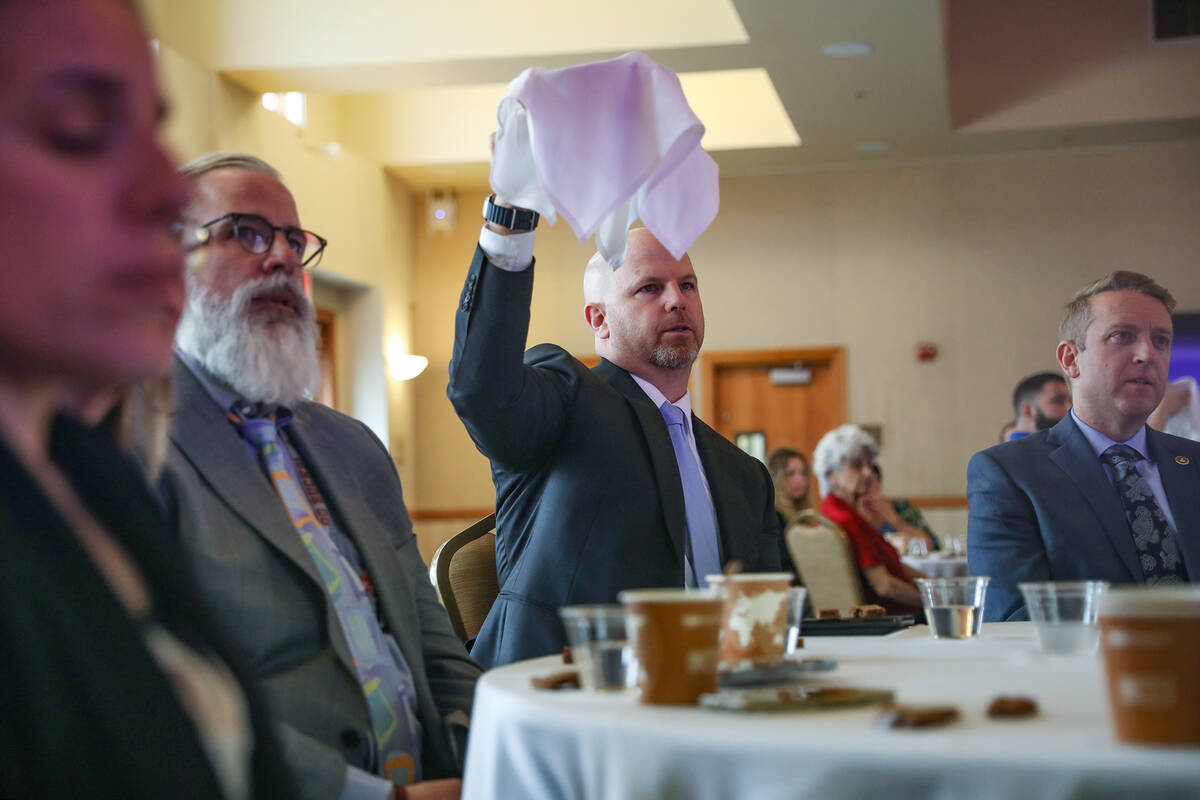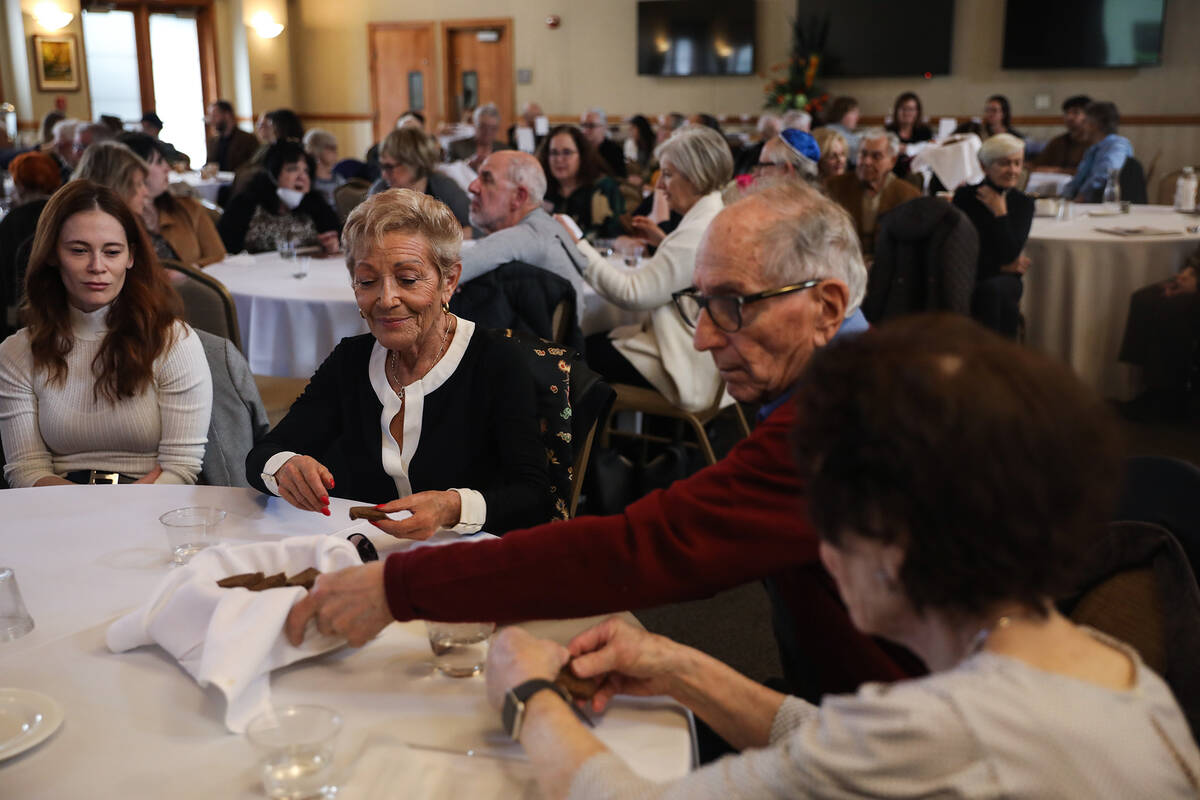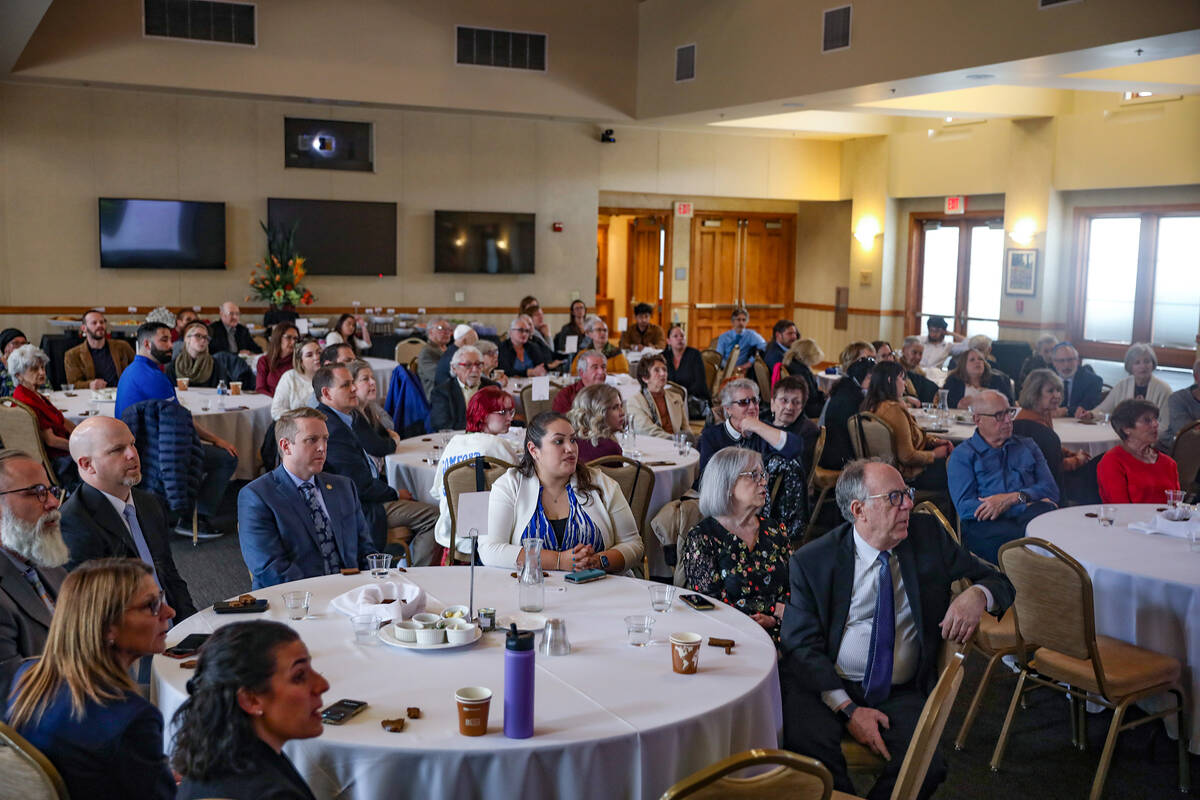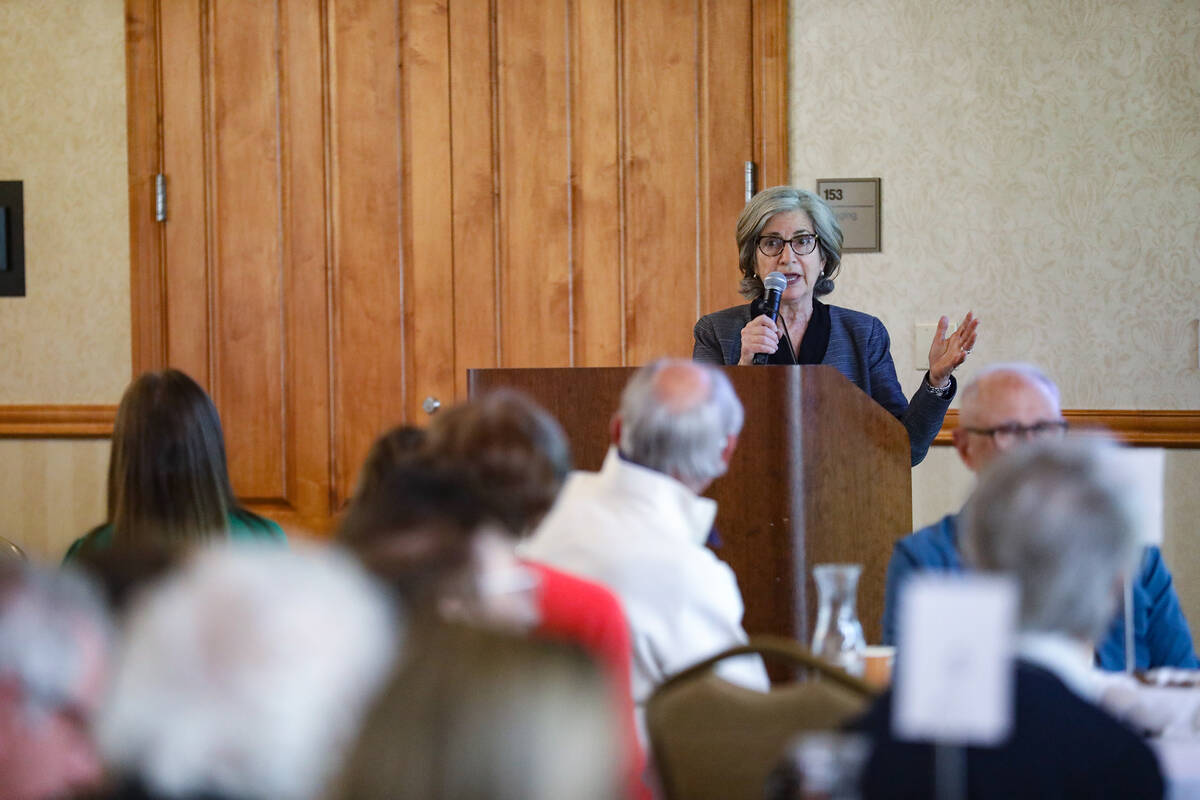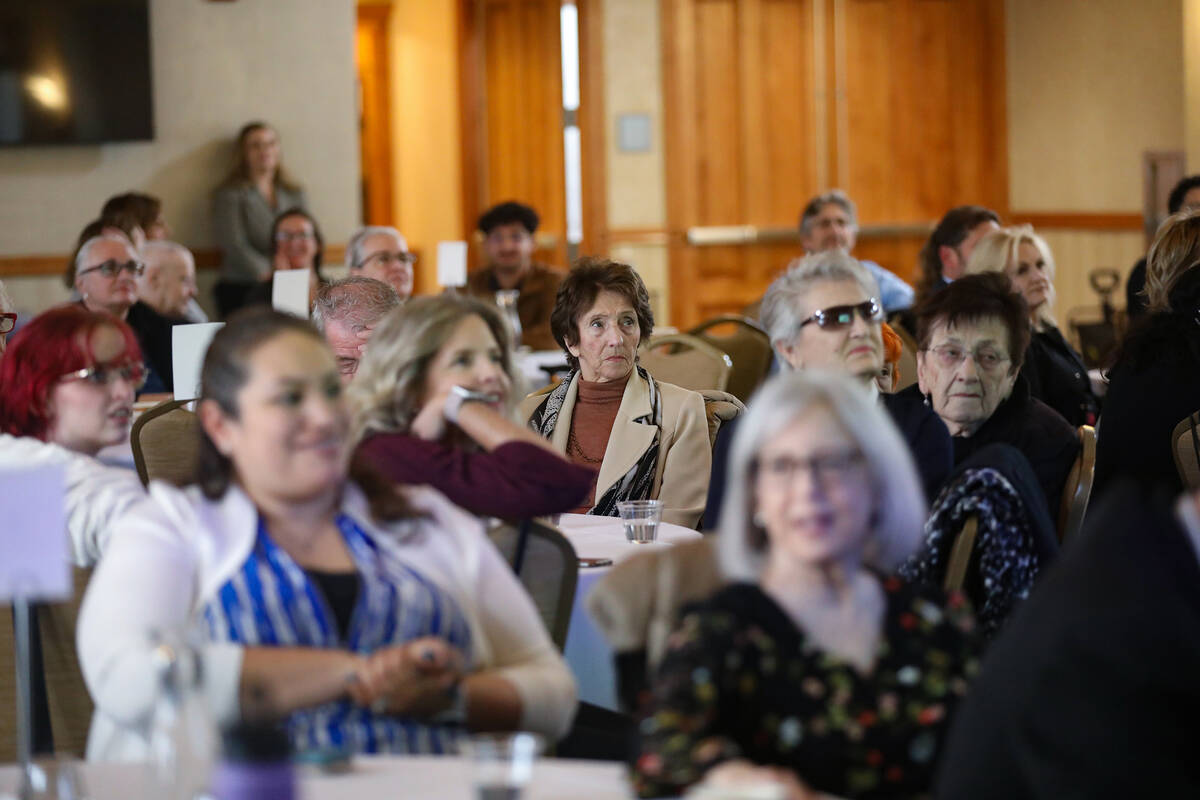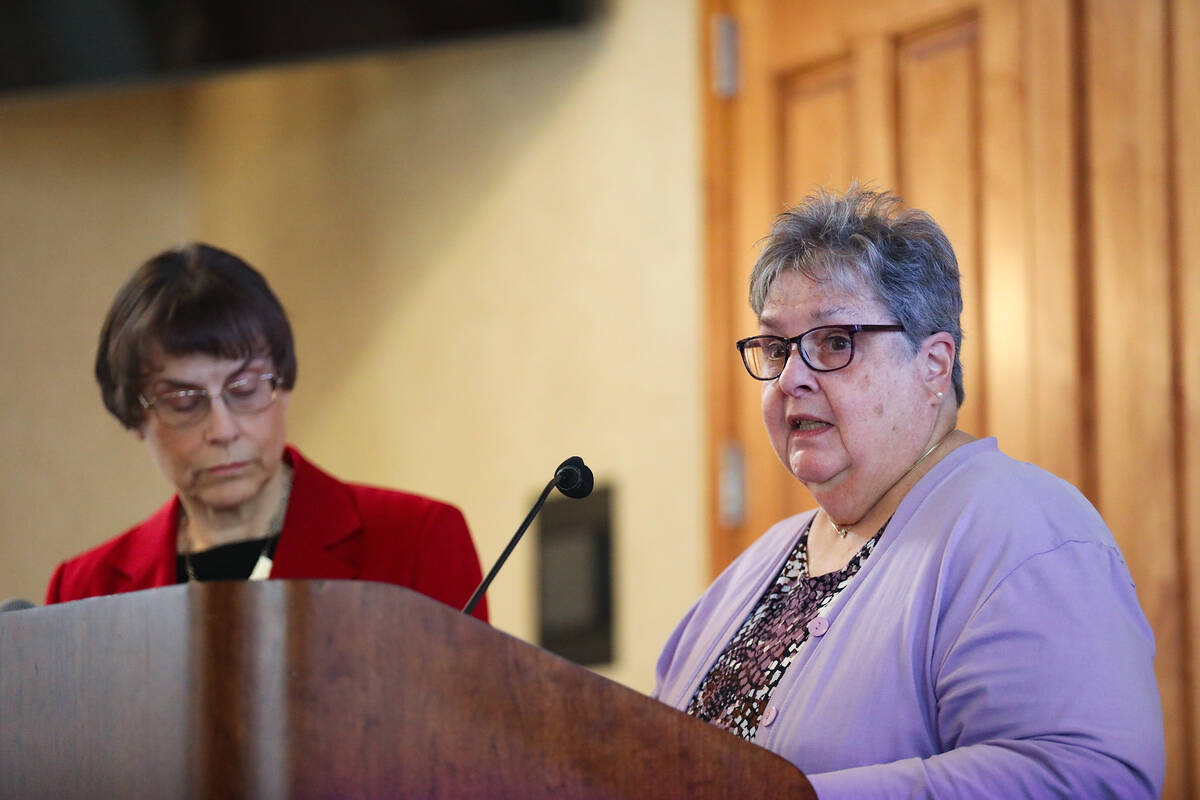‘Never again’: Holocaust survivors, descendants celebrate Passover Seder at UNLV
Holocaust survivors and their descendants shared their personal experiences at a special Passover Seder at UNLV Wednesday to honor and remember the lives of the roughly six million Jews that were lost.
Inside the UNLV Foundation Building where attendees shared a meal, each table had either a Holocaust survivor or a descendant of a survivor for the second annual Shoah — the Hebrew word used to refer to the Holocaust — Passover Seder event.
Stephen “Pista” Nasser, a 92-year-old author, was one of the Holocaust survivors who sat at a table near the back of the ballroom.
“In 1944, there were 21 of us in our family (until) we were taken away to Auschwitz from Budapest,” Nasser said to his table. “Out of the 21, I’m the only one who returned alive.”
To Nasser, it’s important to share these experiences in order to avoid a tragedy like the Holocaust repeating itself.
“Remembering the atrocities of the Holocaust is not just an honor to those who we have lost, but to firmly say never again,” said Roberta Sabbath, a religious studies director and visiting assistant professor at UNLV. “Everyone here today can play a role to ensure that ‘Never again’ is a reality.”
Sharing stories
As attendees ate at their tables, Esther Finder and Lillian Polus Gerstner — both descendants of Holocaust survivors — led the Seder with an informational slideshow about the meal.
Traditionally, the Seder plate is composed of six elements that each have symbolic meaning to remember the hundreds of years that Jewish people were enslaved in Egypt. During Passover, they share stories, read, sing, drink wine and celebrate other traditions.
When the Jews were captured and murdered en masse during Nazi Germany, it was nearly impossible to celebrate Passover Seder.
“Jews died from starvation, disease, beatings, hangings, shootings and gassing (during the Holocaust),” the group recited together. “Even during the lifetime of the Holocaust survivors, there are those who seek to deny this dark chapter of human history.”
In concentration camps, Jewish people had to use the limited resources they had to celebrate Seder. But there was never enough food for the prisoners. If they were lucky, they ate black bread and potato and turnip soup.
At the center of the tables Wednesday were candles with the name of someone who was lost during the Holocaust. Those gathered dipped a turnip in saltwater to symbolize the tears of someone who was starving during that time, and ate black bread with horseradish, to remember the bitterness of Nazi oppression.
Kat Diane Huddleston, UNLV’s director of Jewish student life, encouraged others to share the stories they heard Wednesday with friends and family.
“We need to continue to share these stories so we can continue to remember to always choose life,” she said. “Sharing the stories that you’ve heard here today can help us make never again a reality.”
Contact Jimmy Romo at jromo@reviewjournal.com or call 702-383-0350. Follow @jimi_writes on Twitter.



